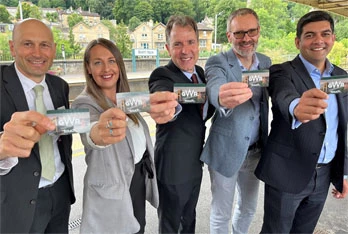City region transport authorities have warned that attempts to introduce London-style ticketing could be heading in the wrong direction because of a lack of direction from the Government on how to integrate emerging technologies.
A report by consultants SYSTRA for the Urban Transport Group (UTG) argues that while transport authorities are investing heavily in the smart ticketing transition, they face ‘significant obstacles’.
It adds that although the Department for Transport has a strategy for contactless ticketing on rail and for multi-operator ticketing on buses, there is no clear framework for how multi-modal ticketing in large urban areas will be introduced.
Similarly, it points out that while there are national standards for public transport smartcards, there is no systematic plan to put a similar system in place for new payment formats like bankcards and apps. This risks different ticketing technologies being unable to talk to each other – creating additional costs and complexity and poor outcomes for passengers.
UTG director Jonathan Bray said: ‘Travellers in our large urban areas want what London has had for years. However, this report shows that in some respects there is a danger that we are heading in the opposite direction.
‘The report identifies there is more our members can do and we will be taking this forward to reduce costs and to ensure greater compatibility. But we also need a clearer national framework to work within and the resources necessary to bring about a London-style ticketing experience in all our major urban areas.’
The report argues that smart ticketing is complicated and the associated skills and expertise are in short supply, ‘especially in cash-strapped local transport authorities who are critical to its delivery’.
It recommends more leadership from Government; better resourcing of the transition through revenue as well as capital funding, and; more collaboration between all the key players – ‘and all of this underpinned by a recognition of the importance of ensuring that different ticketing technologies and payment systems can talk to each other’.


